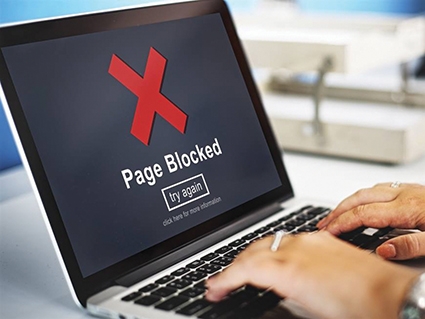CoE: Georgia Failing to Control Illegal Internet Content
Following publication of a Council of Europe (CoE) authorized report on laws and practices of 47 member states on blocking, filtering and removal of Internet content, secretary-general Thorbjørn Jagland urged European governments to ensure that their legal frameworks and procedures in this area are clear, transparent and incorporate adequate safeguards for freedom of expression and access to information.
The study, which was commissioned to the Swiss Institute of Comparative Law, contains 47 country reports and a comparative assessment. It analyses legal frameworks in a wide range of areas including on child abuse material, the protection of national security, the protection of intellectual property rights, defamation and unlawful processing of personal data across the Council of Europe member states.
The study shows that states have taken varied approaches to addressing illegal Internet content. Some apply existing criminal and civil legislation whilst others have enacted specific regulations with procedures for blocking and content-removal applicable to information society services. Some other states rely on self-regulation by the private sector. Generally speaking, Internet companies have introduced rules in their terms and conditions and have put in place self-regulatory mechanisms to block websites or remove content deemed unlawful.
Regarding Georgia, the study notes that despite the fast pace of internet development, the legislation regulating it fails to keep up “with the concomitant development in the majority of cases.” Primarily, the report notes that, “In Georgia, where the practice of legal drafting was initiated just 20 years ago, there is no special legislation primarily focusing on the Internet, which means that no single state vision or concept exists as to what Internet regulation should be.”
There is no official legislative act or code that would encompass every aspect concerning internet law directly or indirectly regulating the legal relations that may appear during Internet usage, despite the existence of separate norms in various legislative acts (Law of Georgia on Electronic Communication Act, No. 1514, LHG; 3 Law of Georgia on Freedom of Speech and Expression, Act No. 220, LHG; Criminal Code of Georgia, Act No. 2287 LHG). On the positive side, the study commends Georgia on ratifying several CoE conventions relevant to the subject, including the Convention on Cybercrime (CETS No. 185) which was mainly transposed into Criminal Code 4 (though Georgia has not signed the Additional Protocol of this Convention 5). Moreover, Georgia ratified the Convention for the Protection of Individuals with regard to Automatic Processing of Personal Data (CETS No.: 108) transposed into the Law on Personal Data Protection 6 and the Convention on the Protection of Children against Sexual Exploitation and Sexual Abuse (CETS No.: 201).
Based on all its findings, the report maintains that Georgia can be described “as a country with no specific regulation on these issues (B category). It should be mentioned as well that as a contracting state to the Convention for the Protection of Human Rights and Fundamental Freedoms (ECHR), general safeguards on freedom of expression apply, including in the field of Internet.”
While many of the 47 member states have supplied for official commentary after the publication of the report, stressing their official stance on the matter, Georgia has yet to do so.
Vazha Tavberidze












